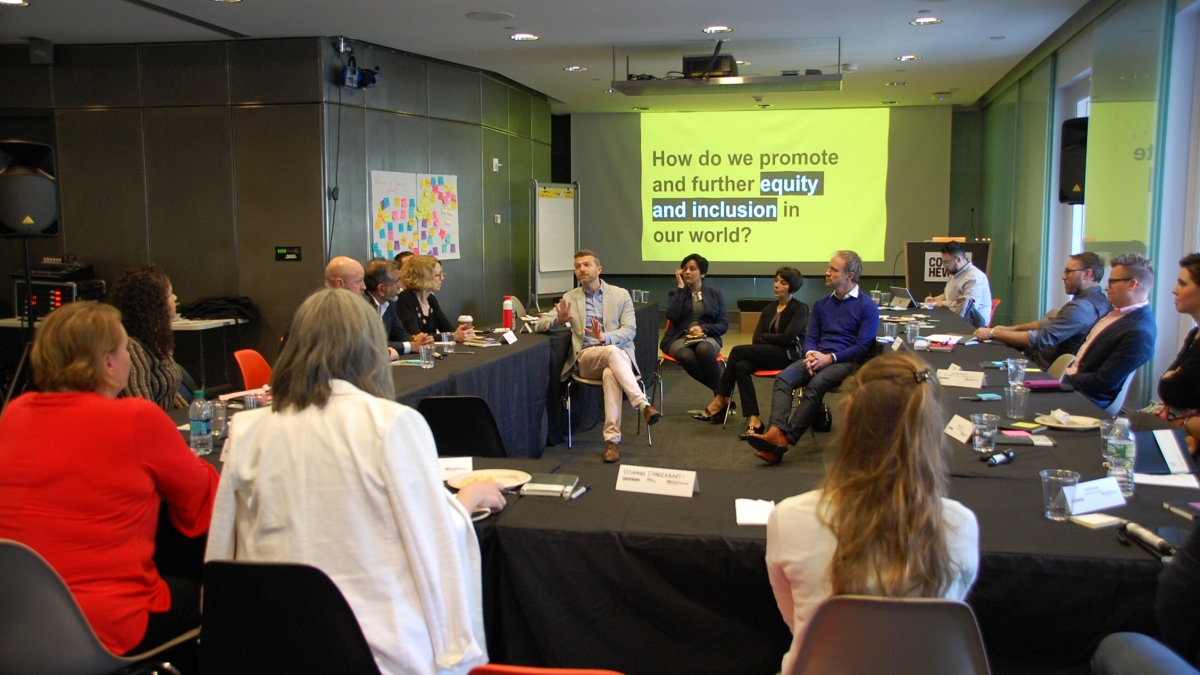ASU invites industry leaders to help rethink design education

The Design School hosted its final national roundtable in New York City at the Cooper Hewitt, Smithsonian Design Museum. Courtesy photo.
How do you create a school that is inclusive, collaborative and equitable?
That is the question The Design School at Arizona State University is asking design leaders across the country through ReDesign.School, a new platform focused on the future of design education. ReDesign.School invites people from any background and any city in the world to engage with The Design School — and each other — by addressing pressing questions about the future of design education head on.
Jason Schupbach, director of The Design School, introduced this open, online conversation.
"Our goal is to be on the front lines of innovation in design education,” Schupbach said. “So, we are working with leading designers in the industry to delve into this important conversation and help us redesign our school together. Through this process, we want every voice heard, from students and alumni to top leaders in the industry. This process is about all of us, and moving forward as a community.”
Since February, over 200 ASU students, alumni, faculty and leaders in each design discipline have shared their thoughts on the ReDesign.School website. To keep the conversation growing, The Design School traveled to Los Angeles, San Francisco, Washington, D.C. and New York City, to host roundtable conversations in venues like Cooper Hewitt, Smithsonian Design Museum and Yerba Buena Center for the Arts. There, designers and educators discussed various facets of design education, including where design is heading and how to keep it relevant. Their feedback? This is exactly the type of conversation the design world needs to be having.
“In order for design to stay relevant, it must incorporate a human-centered approach to empathy, allyship, and systems-thinking,” Liz Ogbu posted.
Ogbu is the founder and principal of Studio O, a multidisciplinary design and innovation consultancy. As a next generation leader, Ogbu is keenly interested in contributing to this global conversation of design education. Her recent TED talk on spatial justice speaks to collaboration with architects, developers and policymakers, asking them to consider design solutions to the problems local communities face. These solutions, Ogbu points out, start with design education and transdisciplinary work.
To address transdisciplinary solutions, Susan Szenasy, Metropolis magazine’s director of design innovation, shared on ReDesign.School that in order to prepare students for this work, design education must “pull the disciplines together, understanding our humanity and the Earth’s functions through a broader evolution of design and collaboration.”
Altay Sendil, manager for core product UX research at Pinterest, added: “The future skill sets designers need to have include the ability to collaborate with multiple disciplines and the ability to embrace storytelling as a tool, in order to be self-sufficient.”
Hundreds of different responses on ReDesign.School can be experienced through a variety of essays, videos and roundtable transcripts addressing questions around equality, inclusion, collaboration, transdisciplinary work and relevance in design education. All are welcome to share their ideas or read through the existing responses as the listening process continues. Once the listening process is concluded, The Design School will take next steps toward bringing these ideas to life, with a radical redesign of future curriculum.
“If we want the design world to change, we need to ask different questions,” Schupbach said. “Through this redesign process, we aim to capture powerful ideas in the design community that, together, can create an environment for our students that is truly equitable and collaborative.”
More Arts, humanities and education

Local traffic boxes get a colorful makeover
A team of Arizona State University students recently helped transform bland, beige traffic boxes in Chandler into colorful works…

2 ASU professors, alumnus named 2025 Guggenheim Fellows
Two Arizona State University professors and a university alumnus have been named 2025 Guggenheim Fellows.Regents Professor Sir…

No argument: ASU-led project improves high school students' writing skills
Students in the freshman English class at Phoenix Trevor G. Browne High School often pop the question to teacher Rocio Rivas.No,…

